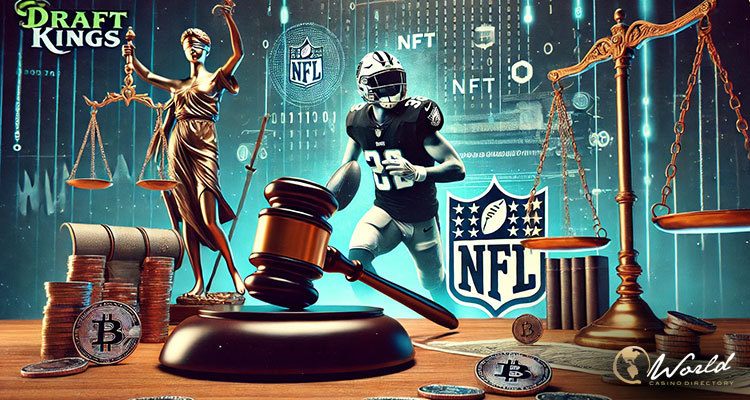The NFL Players Association (NFLPA) has initiated legal action against DraftKings and its parent company, DK Crown Holdings, Inc., lodging a complaint in the US District Court for the Southern District of New York. This lawsuit stems from DraftKings’ decision to cease operations of its Reignmaker NFT platform in July, an action the NFLPA claims violates their contractual agreements regarding intellectual property rights licensing for NFL players’ likenesses in fantasy sports contests.
Legal actions underway:
David Greenspan, a seasoned litigator specializing in antitrust, sports, and complex commercial litigation with Winston & Strawn LLP in New York City, represents the NFLPA. Greenspan is not new to high-stakes sports litigation, having previously secured victories in multiple antitrust class-action lawsuits against the NCAA focused on the organization’s compensation models and Name, Image, and Likeness (NIL) issues.
The details of the lawsuit are largely shielded from public view, with most documents sealed and no indication of when they might be accessible. In a move to manage sensitive information, the NFLPA’s legal team has requested permission to file redacted documents.
DraftKings, headquartered in Boston and recognized as a sports betting partner of the NFL, ventured into the NFT market with the launch of its marketplace in August 2021. Touted as a promising opportunity for collectors, the platform allowed consumers to purchase NFTs linked to NFL players, which they could then hold in a digital wallet or trade on DraftKings’ secondary market. These NFTs were developed in collaboration with Autograph, a notable entity in digital collectibles.
However, the enthusiasm for NFTs waned as swiftly as it had surged. DraftKings discontinued its NFT business on July 30, a move reported by Yahoo! Finance as being driven by legal challenges. As iGaming Business reports, the company stated, “After careful consideration, DraftKings has decided to discontinue Reignmakers and our NFT Marketplace, effective immediately, due to recent legal developments. This decision was not made lightly and we believe it is the right course of action.”
Broader legal challenges with NFTs:
The discontinuation ties into broader legal scrutiny over NFTs, exemplified by another ongoing lawsuit in Massachusetts. This case questions whether NFTs should be classified as securities and if their sale contravenes Securities and Exchange Commission (SEC) regulations.
As the market for NFTs expanded, DraftKings co-founder Matt Kalish expressed optimism about the potential for NFTs to evolve into a “gigantic” business segment. Despite this initial enthusiasm, the legal complexities surrounding digital assets like NFTs have posed significant challenges, affecting companies’ abilities to sustain such ventures.



